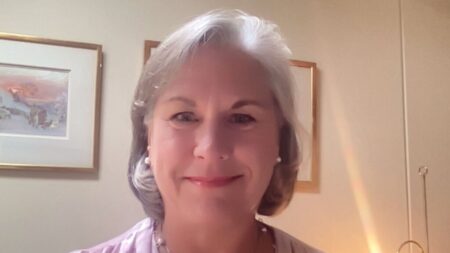Schools for hire

Outside filming for Three Men in a Boat at Mill Hill
Dorothy McLaren questions Adele Greaves, director of commercial operations at The Mill Hill Education Group, about how she has increased the revenue from lettings income
Adele, you’ve been working with Mill Hill for some years now, making lettings count. Where did it all start?
After over 17 years working in the commercial school sector there’s not much I haven’t seen. When I started out, some schools were renting out their halls and sports centres on a very ad hoc basis, with the bursar or the school office often trying to juggle this alongside their other commitments.
When I was approached by the bursar of Mill Hill, I was working in the events industry and so the transition seemed easy and then I very quickly ended up doing my first film shoot. It was baptism by fire, no small affair, but a big ITV drama which brought a lot more drama than I had anticipated. But I survived, as did the school happily, in receipt of an injection of cash. Suddenly, commercial opportunities were taken seriously.
Starting with filming, that’s a brave – or foolhardy – decision?
Yes, it was in retrospect probably quite foolhardy. The school had no prior experience of filming and neither did I, but now, more than 150 film shoots on, Mill Hill has established a reputation as a great location and we have generated significant returns for the school. We’ve also started to engage our students in the process, where appropriate, offering them opportunities to work on a professional film set, and we now have an annual London schools film competition, londonschools.film, judged and supported by our contacts from the industry.
A word of caution, though, filming isn’t for every school and you do need to remember that (a) You need the school’s buy-in – which needs to review the script carefully and sign off the project; (b) If you’re managing a film shoot, you need to remain firm about what is allowed to happen onsite and what you will and won’t accept; and (c) You will need to be flexible. There will be times when they’re on set and they may decide they need to change something or move location slightly; adapt to it.
So, filming is one way of generating revenue from the school’s buildings and facilities, but probably not where most schools will start?
No, probably not. Fast-forward and I am now asked what the best strategy is to ensure that commercial income is consistent and in line with the needs of a school and that we optimise the return on our assets.
Like all businesses, the first income streams should be the easy wins, the building blocks on which to build. For many schools, a day camp and/or a residential let run by reputable third parties can bring in reliable and substantial amounts of income. The external company, operating independently as a business, will take the pressure off the school’s team, allowing them to focus on other areas. Then comes the dry hire – classroom lets, regular theatre bookings, sports pitches and swimming pool hire – followed by specific bespoke programmes and events – and perhaps filming – all of which are slightly riskier but with potentially higher financial returns.
How do you get going on the commercial journey?
Schools need to start by identifying the opportunities. Every school has at least five asset classes they can explore, all of which can deliver a significant return when managed carefully and in the context of a wider whole-school strategy: education, probably the school’s most significant asset and often the most overlooked when it comes to commercial opportunities; co-curricular, normally evidenced by the school’s considerable investment in appropriate facilities; provenance, the vital role that the history and connections embedded in the school’s past can play in the future success of the school; community, partnerships and public benefit – a significant and growing group of assets that, when carefully considered and integrated into the commercial strategy, can deliver excellent returns for both parties; and finally, of course, the buildings and facilities, which most schools have in abundance and which, in many schools, lie dormant for a significant part of the year.
For some schools, it may be that the only agreed and accepted income generation opportunities initially arise from, for example, the hiring out of sports facilities – the letting of the sports hall, swimming pool, tennis courts etc – but for others it may be a lot broader and deeper, involving different departments across the school in developing bold projects and programmes that knit together different assets to deliver more significant returns. These bespoke projects are riskier, but the returns are significantly higher.
A whole-school approach to commercial activity is so important, with results often leading to a sum greater than its parts. How, in your experience, can this work in practice?
When we get it right, the returns are significant. Not only can we generate much better revenues when we develop a broad-reaching programme, which engages the school and the wider community, we also get a chance to better position the school and reinforce its brand and USPs (unique selling points). Getting this right can be challenging and it is important to look at the strengths within your school community: the well-placed head of sports or drama, for example, to see what connections can be made in their respective fields.
This level of attention and planning will not only bring good PR to the school, with amazing opportunities for current pupils from the school’s contacts, these initiatives and programmes will also engage the local community and extend the brand’s reach far beyond the school walls. Often working with the right, carefully selected partners, you will find that they can add real value, respecting and potentially even investing in your facilities, and introducing prospective pupils into the admissions department.
Any director of commercial operations needs to be involved in key planning of the school’s future, especially the planning of new buildings or current building upgrades to future-proof dual use to maximise commercial opportunities. Commercial use must become an integral part of the school’s timetabling – vital, additional income and value, not inconvenience – and the development of programmes and initiatives must be undertaken with transparency.
There need to be open conversations about the importance of this non-fee revenue.
We often talk about ‘dual use, school first’ – is it a given that you have dual use approval?
No. I started out by understanding the school’s estate, or estates in our case as we now have eight schools within the Mill Hill Education Group and we are working hard to drive returns on our assets across all of our schools. I start by understanding how the estate is used by the school, when the facilities are lying empty and which are in demand on the open market or unique to the school within its particular target market. I also appraise what opportunities there are in the local community, such as local community school needs, strong sports associations or clubs, local area community groups or simply a lack of local venues to hold meetings, workshops, revision classes or events.
This work is the basis of fulfilling the ‘dual use, school first’ promise, but it is only the beginning. You then need to consider safeguarding and child protection, contracts and commercial parameters, which will often require legal advice. You need to develop appropriate risk assessments, consider health and safety impacts, and ensure that the good reputation of the school is protected above everything else. Your colleagues will expect you to have covered these bases and you will need to reaffirm your commitment, consistently and continuously, to delivering a professionally run school site, irrespective of whether it is for school use or a third party.
What is critical to the success of a commercial programme?
You need a clear mandate from the very top of the school – the chief executive/chief operating officer, the head(s) and the senior leadership team. The leader of the commercial operations team needs this senior level of support and then the grit, vision, creativity and bravery to develop exciting, bold and interesting projects, which inspire the internal audiences and encourage participation and engagement from your external audience. Crucially, the commercial team will need the support and participation of the school’s marketing team since they are the custodians of the school’s brand(s) and your marketing partners are invaluable in helping to take the product(s) to market and engaging the wider community.
Have you seen a change in how schools approach their commercial activities?
With the pressures on schools to generate additional income, there’s never been a more important time to look at every possible source of revenue. The school’s doors should be as open as the minds of all those looking to make the most of their considerable assets.
I have been excited by the formation of the Schools Enterprise Association in recent years, which supports the commercial managers and all those working in this unique sector within schools. It is important that everyone is actively engaged so that schools and pupils benefit from the opportunities to really add significantly to the school’s non-fee revenue streams as every penny will become even more vital over the next few years.
Adele Greaves is the director of commercial operations at The Mill Hill Education Group; Dorothy McLaren is the founder and chief executive of The Schools’ Enterprise Association.

Dorothy McLaren

Adele Greaves
